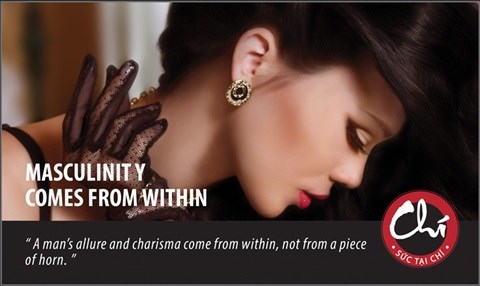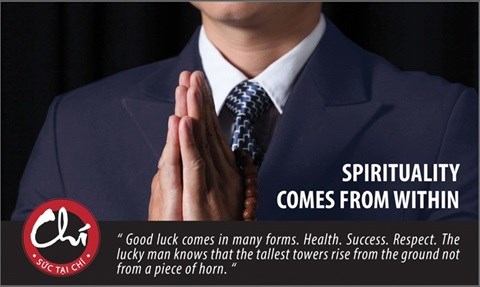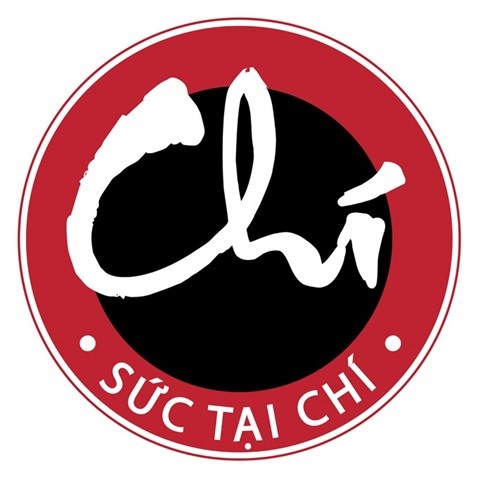
Unlike conventional conservation messaging that focuses on the plight of endangered animals, this campaign addresses the emotional motivators behind
rhino horn consumption.
The 'Power Comes From Our Will' campaign - also known as the Chi ("Will") campaign - was shared with journalists and business leaders in Hanoi today and will be rolled out through a variety of media.
The campaign comes against the backdrop of an increasingly dire situation for the world's rhino species that are under intense pressure from illegal wildlife traffickers who are tapping into a lucrative Asian market.
In South Africa, which is home to 82% of Africa's surviving rhino, poaching has skyrocketed from only 13 animals in 2007 to 1004 in 2013. On 11 September 2014, the Department of Environmental Affairs in South Africa announced that 769 rhinos had already been poached this year.
WWF-SA rhino programme manager Dr Jo Shaw said: "The key to the future of our rhinos will ultimately be determined in Asia, not Africa. It is imperative that we work strategically along the entire illicit supply chain, from rhino to consumer, if we are to hope to win this war."
Three NGOs have collaborated on this work; WWF South Africa, TRAFFIC (the wildlife trade monitoring network) and PSI - a social marketing group with
expertise in behaviour change.
The behaviour change campaign targets men aged 35 to 50 living in Hanoi and Ho Chi Minh City, given perceptions among this group that the rhino horn is an effective way to rid the body of toxins, enhance business relationships and symbolises good fortune, and promotes success, masculinity and luck as
measures of internal strength of will and character.
Among the campaign's key messages are that "wise men know the truth; professional achievements, charisma and good fortune come from what's within, not from a piece of horn".
It drives home the message that Vietnam's most impressive and charismatic men have created their own good fortune with their internal drive, dedication and
talent, and know that a piece of horn is no substitute for the power that lies inside of them. Experience has shown that positive messaging coming from
within the target group is the most powerful way to change behaviour.
"The Chi campaign builds upon leadership shown by Vietnam in proactively reducing illegal trade of the rhino horn to Vietnam," notes Dr Naomi Doak, of
TRAFFIC's Greater Mekong Programme.
The campaign is also based upon findings from groundbreaking research undertaken last year during which 720 individuals in Hanoi and Ho Chi Minh City were interviewed to find out what was driving the demand for rhino horn in order to design this targeted approach.



The rise in rhino poaching coincides with a rapid rise in purchasing power in Asian economies in the last three decades, with a concomitant trend of conspicuous consumption of luxury goods, including rare wildlife products such as rhino horn. The underlying reason for rhino horn consumption was found to
be related to notions of social status along with deeply held beliefs about emotional and health benefits associated with the use of rhino horn.
The results of this study laid the foundation for the Chi campaign that will include the following interventions:
The intention is to use the communication materials revealed today in public installations at high-end stores, golf clubs and other similar venues, in print and online publications, digital media advertisements, credit card and airline mileage statements and radio slots during morning drive time.
The campaign will also target corporate and spiritual leaders and other influential people in society to become Chi campaign ambassadors and encourage
workplace interventions (for instance the use of email signatures of the campaign logo).

The Chi logo is based on the common Vietnamese concept that a person's internal will is a source of strength, success and power. The logo was purposefully designed without any link to the rhino, consistent with feedback from the target audience that previous campaigns / PSAs focusing on telling the rhino's story did not resonate. Dynamic Vietnamese business leaders don't need a piece of rhino horn to prove they are lucky, strong or wealthy, as their success
comes from their will.
Four images were developed to build a new social norm that success, masculinity and good luck, in man's life, comes from his own will and internal strength, not from a piece of horn. The first is a teaser "Be Aware" followed by three consecutively placed creative designed around a common theme & tagline: "Masculinity/Spirituality/Business success or 'Character' comes from within, not from a piece of horn".